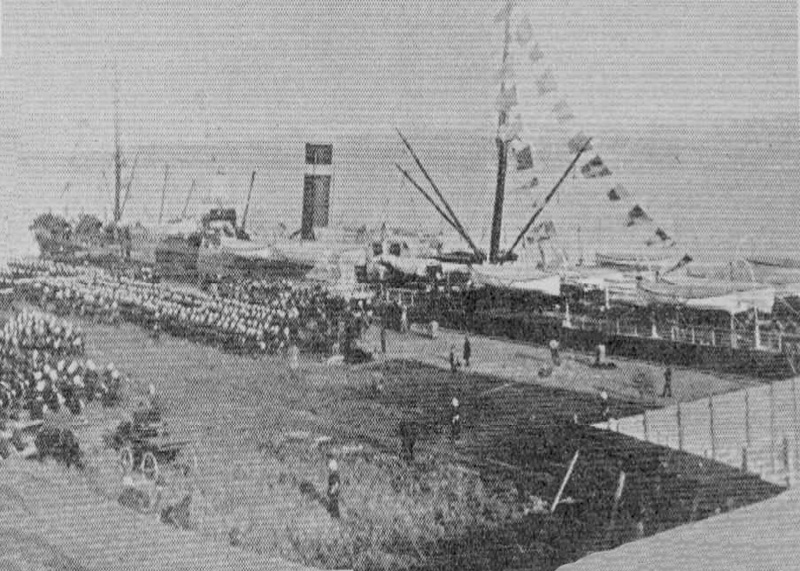
HISTORICAL EVENTS THAT TOOK PLACE ON THIS DAY IN CANADA
21 JANUARY

Canadian troops embark for the Boer War
Troops Sail to South Africa
One of the great paradoxes in Canadian political history was brought about by Britain's calls to Canada for military aid in 1884 and 1899. In 1884 Britain's General "Chinese" Gordon was besieged at Khartoum. Canada was asked to send troops but Prime Minister Sir John A. Macdonald, whose election battle-cry was, "A British subject I was born; a British subject I will die," refused.
He would only allow Britain to recruit troops in Canada by paying them, with the result that only 400 French-Canadian voyageurs helped paddle Wolseley's expedition up the Nile (see December 21).
Late in 1899 Britain was in trouble again, this time in South Africa. German-Dutch leaders trying to win independence for the Transvaal and Orange Free State had besieged British-held Mafeking, Ladysmith and Kimberley. The Boer War had begun.
This time when Britain asked Canada for help, Sir Wilfrid Laurier, a French-Canadian, was Prime Minister. Despite the fact that French-Canadians have always objected to fighting outside their own country, Sir Wilfrid's government authorized the sending of troops within three days. One contingent sailed from Halifax on January 21, 1900, but the first had sailed from Quebec only three weeks after the war had been declared! Altogether more than 7,000 Canadians fought in the Boer War.
One of the Canadian units was the Lord Strathcona Horse, recruited and financed by Donald A. Smith (Lord Strathcona) , who had made a fortune in the building of the C.P.R. The Canadians were better suited to the South African type of warfare than British "Regulars". They understood the guerilla type of fighting needed in that terrain. After the battle of Paardeberg, Lord Roberts, British Commander-in-Chief, said: "A most dashing advance made by the Canadian regiment and some engineers ... apparently clinched matters.
Many Canadian place names commemorate the part played in the Boer War by Canadians. Kimberley and Ladysmith, British Columbia, are among them.
Why did Sir Wilfrid Laurier, a French Canadian, do what Sir John A. Macdonald was not willing to do? Recognizing that French Canadians were opposed to going to war, but that most other Canadians wanted to help Britain, Laurier decided that the majority should rule.
OTHER NOTABLE EVENTS ON THIS DAY IN CANADIAN HISTORY
21 JANUARY
-1757 A French-Canadian force defeated the British at Ticonderoga, New York.
-1796 General Robert Prescott became Governor of Lower Canada.
-1807 A Jewish member of the Lower Canada Assembly was not allowed to take his seat.
-1826 A Session of the Lower Canada Assembly opened. Measures included one which enabled courts to abstain from imposing the death penalty for certain crimes.
-1839 Acadia College was opened at Wolfville, Nova Scotia.
-1914 The death of Lord Strathcona in London, England, was announced.
-1960 Prime Minister Kishi of Japan visited Canada.